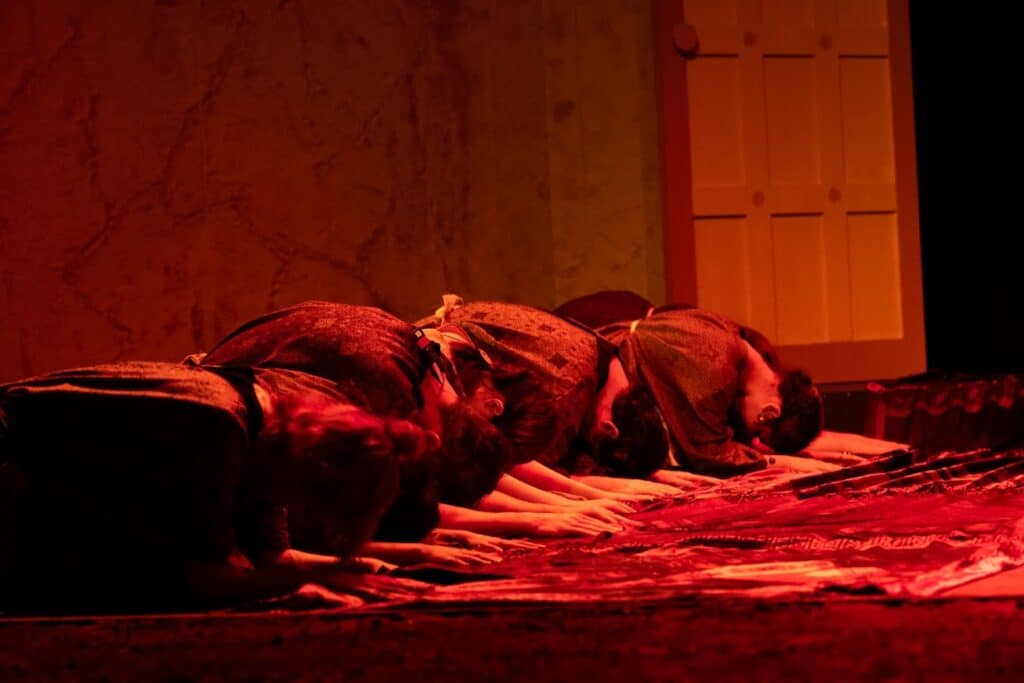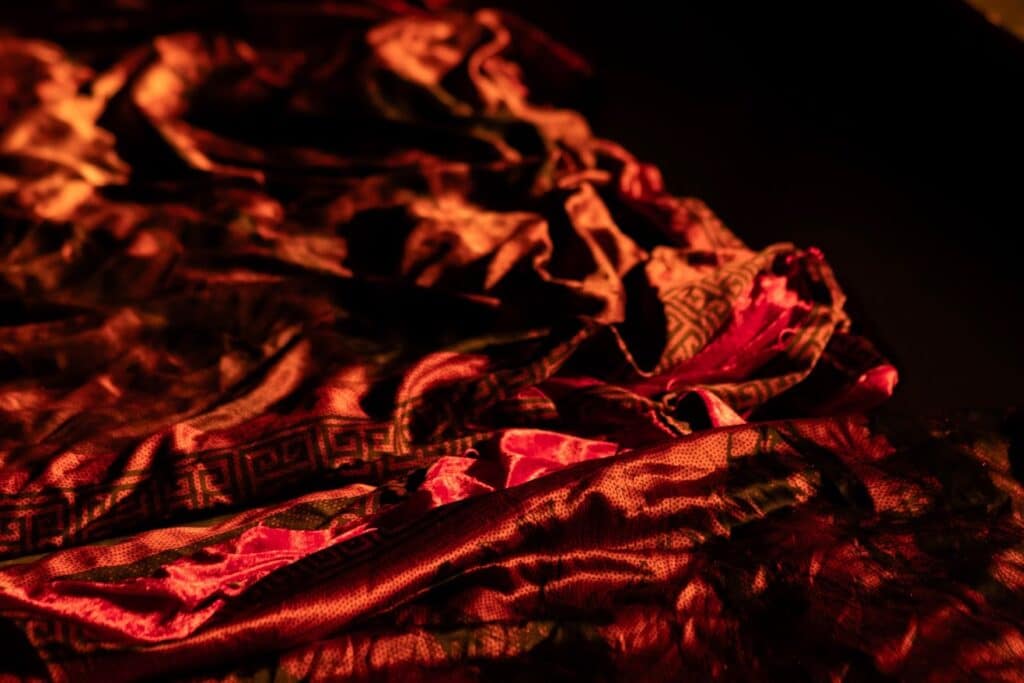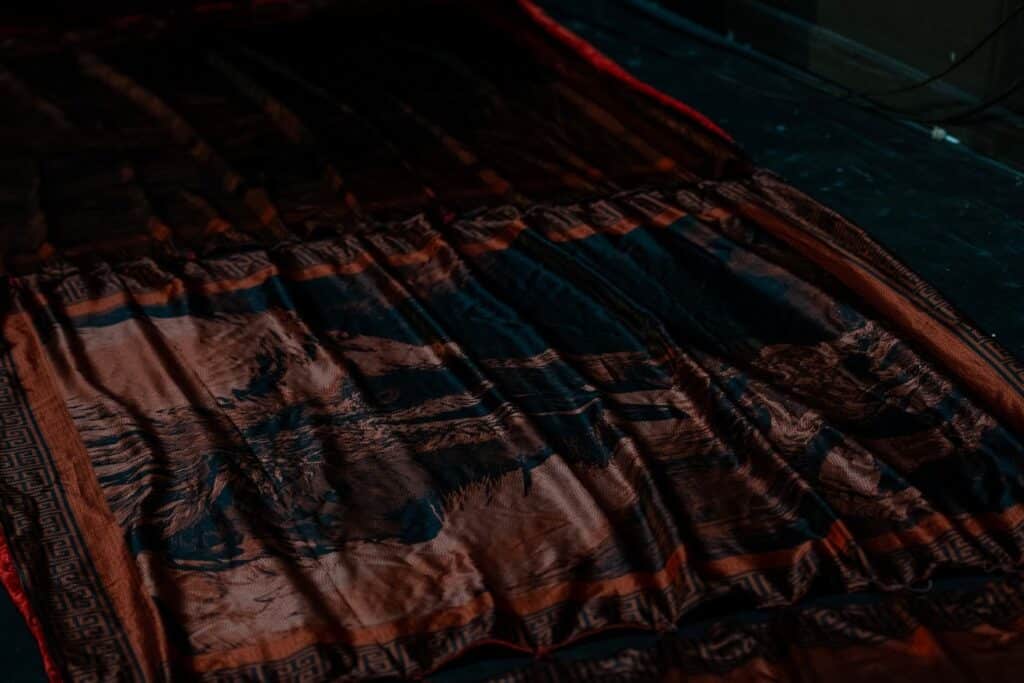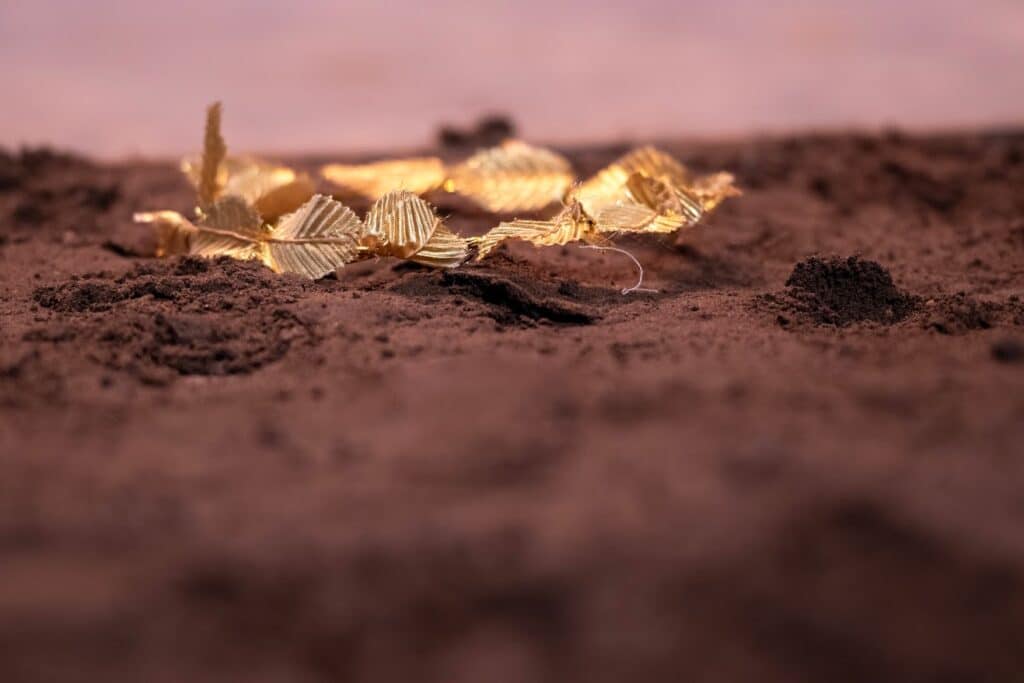Aeschylus’ The Persians
25 – 26 January 2024, Generously funded by the British Academy

25 – 26 January 2024, Generously funded by the British Academy


Director: Cameron Heagney
Producer: Louise Domogal | Stage manager: Colleen Baxter-Locker | Academic Consultant: Dr Emmanuela Bakola
In the role of Atossa: Sommy Chukwuma | Darius: Jed Kain | Xerxes: Seb Handley
After Sophocles’ Oedipus Rex in 2020, Euripides’ Bacchae in 2022, Aristophanes’ Assemblywomen in 2023, Aeschylus made his much-anticipated debut in this year’s production of the Persians by the Warwick Classics Society and the Department of Classics and Ancient History at the University of Warwick. The play itself, presented in the recently renovated theatre of the Warwick Arts Centre, was a thrilling performance of the earliest surviving Greek tragedy and the only drama to draw its plot on historical events, accompanied by assorted talks and lectures from scholars of Greek drama.
This year's production of The Persians was powered by the creative spirit and collaboration between student volunteers and teaching staff at the Department of Classics and Ancient History. From the very beginning, Director Cameron Heagney, Producer Louise Domogal, and Stage Manager Colleen Baxter-Locker worked closely alongside Dr Emmanuela Bakola to produce a version of Aeschylus' Persians that reflected modern research into ancient theatre and festivals. The symbolic potential of fabrics and colour, as well as the careful manipulation of light, depth, and space, were key among their concerns in creating a modern production that could experiment with the stagecraft of Aeschylean tragedy.
From here, the active collaboration of the cast in sharing ideas and bringing them to life on stage brought great strength to the production. Moreover, the talents of alumna Hana Lawrie in costume design and construction, as well as of alumna Rhianna Pike in music composition and vocal training, also contributed greatly to the development of The Persians as a production built by local talents of the community centred around Warwick and the Department of Classics and Ancient History.
The production team would also like to thank Avion Technical Services Ltd. for their assistance during this production. Specific thanks are for Alex Davies for his outstanding contributions to the production of The Persians in lighting design and operation.

Supporting the matinee performance on Friday 26th of January, the Department offered a series of lectures, discussions, and seminars specifically for school students. These talks were designed to complement the Greek, Classical Civilisation, Ancient History, Drama, and English syllabuses at GCSE and A-Level. No prior knowledge of the play or subject area was required, and all were welcome to appreciate and see The Persians in its social, historical, and literary contexts.

If you would like to reach out to know more about this production, the Warwick Ancient Drama Festival, or the Department of Classics and Ancient History at the University of Warwick, please feel free to contact Dr Emmanuela Bakola at [email protected]
Department of Classics and Ancient History, Humanities Building, University of Warwick, Coventry, CV4 7AL